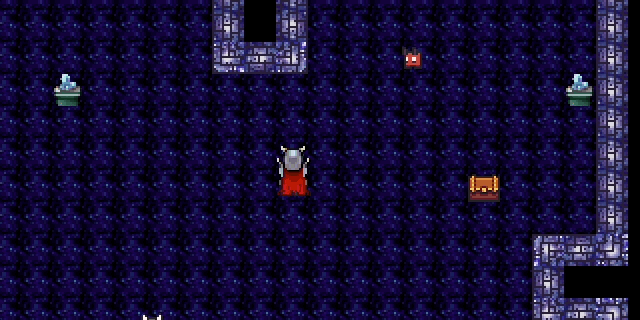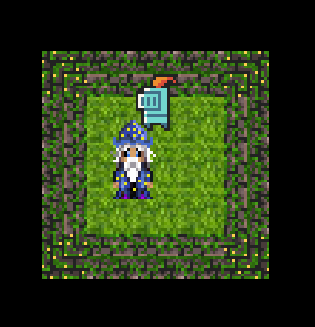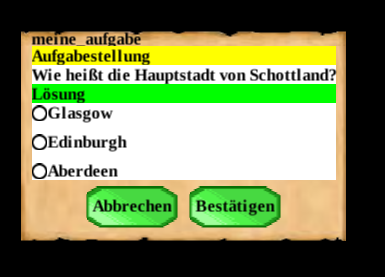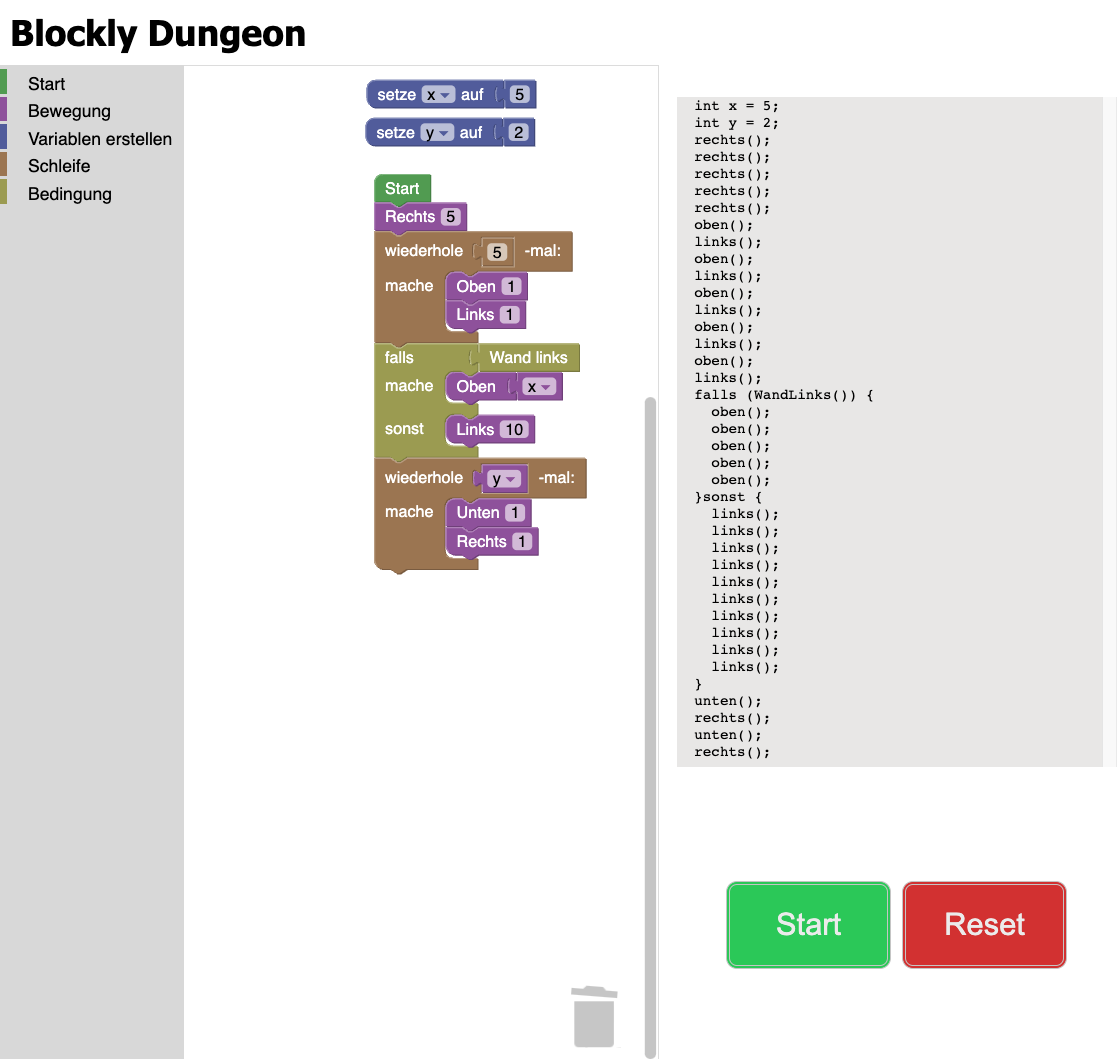The Dungeon is a multifaceted project for the gamification of educational content. It comprises three parts: "Game", "Dungeon" and "Blockly":
- "Game" constitutes a basic gaming platform that can be used in class to learn and deepen Java skills and allows students to develop their own role-playing game.
- "Dungeon" extends "Game" with numerous game elements and a Domain Specific Language (DSL) that can be used to "code" classic exercises and automatically convert them into a ready-made game. Players solve the exercises by playing the quests.
- "Blockly" adds a block-based programming language to the project. It is primarily aimed at programming beginners and can be used to visualise simple algorithms.
You can find an interesting report on our project in the news section of Bielefeld University of Applied Sciences (04 April 2024, in German).
The sub-project game is the foundation of the entire framework. It provides a programming
platform based on libGDX, which is intended to support easy development of rogue-like 2D
role-playing games in the Java programming language. It is particularly suitable for
programming beginners, as it already provides solutions based on the ECS architecture
pattern for complex tasks such as generating levels and drawing and animating characters.
This allows the user to focus on Java programming.
The Quickstart (German) and the Documentation (German) should help you get started quickly.
The sub-project dungeon extends "Game" and provides a wide range of game elements that can
be used directly to create a rogue-like 2D role-playing game.
Teachers can use the DSL provided by the project to conveniently devise typical exercises from the study context. The framework automatically translates these formally described exercises into various game scenarios and generates ready-to-play games as a result. There are also various control mechanisms that make it possible to devise customised learning paths. The exercises are presented as quests in the generated game. Teachers do not have to code the game mechanics themselves. (Well, of course you always can add your own mechanics using Java code.)
The Quickstart (German) and the Documentation (German) should help you get started.
The Dungeon: StarterKit provides you with everything you need to get started immediately without coding and/or compiling.
The sub-project blockly extends "Dungeon" and uses Google's Blockly to provide a
graphical low-code user interface. The character in the dungeon can be controlled via a web
interface (locally), allowing users without in-depth programming knowledge to take part in the
experience.
The Documentation (German) should help you get started.
Java SE Development Kit 21 LTS installed.
Currently the path to the project files cannot contain any spaces, special characters or umlauts.
This project is intended as supplementary teaching material for German-language university courses and is therefore aimed at German-speaking students. If you have any questions, problems or suggestions, please feel free to contact us in English or German.
This project was funded by Stiftung für Innovation in der Hochschullehre ("Freiraum 2022").
The assets in game/assets/, dungeon/assets/, devDungeon/assets/, and
dungeon-task-manager/Task_Management_Dungeon/src/main/kotlin/icon/ are a mix from free and
self created resources:
- Textures and animations:
- https://0x72.itch.io/16x16-dungeon-tileset (CC0 1.0)
- https://0x72.itch.io/dungeontileset-ii (CC0 1.0)
- Music and sound effects:
- https://alkakrab.itch.io/free-12-tracks-pixel-rpg-game-music-pack (CC0 1.0)
- https://opengameart.org/content/50-rpg-sound-effects (CC0 1.0)
- https://opengameart.org/content/hurt-death-sound-effect-for-character (CC0 1.0)
- https://opengameart.org/content/80-cc0-creture-sfx-2 (CC0 1.0)
- https://freesound.org/s/578488/ (CC0 1.0)
- Icons in
dungeon-task-manager/Task_Management_Dungeon/src/main/kotlin/icon/- https://www.composables.com/icons (Apache 2.0)
- Adapted and modified by @Flamtky:
- Files (except Health Potion) in
dungeon/assets/items/potion/(originating from @dkirshner) - Files in
game/assets/dungeon/*/floor: eachfloor_damaged.png(originating from @dkirshner) game/assets/dungeon/fire/floor/floor_1.png(originating from @dkirshner)
- Files (except Health Potion) in
- Self created by @Flamtky:
- Files in
devDungeon/assets/objects/spawner/
- Files in
This work by André Matutat, Malte Reinsch, and contributors is licensed under MIT.
All files in doc/publication/ are licensed under CC BY-SA 4.0.
All files in game/assets/, dungeon/assets/ and devDungeon/assets/ are licensed
under CC0 1.0.
All files in dungeon-task-manager/Task_Management_Dungeon/src/main/kotlin/icon/ are
licensed under Apache 2.0.





